Classics
Head of Department: Mr J D Gedye
Exam board: OCR
Qualification name: Classics
Qualification codes: GCE AS H038, GCE A level H438
What you will study
Lower Sixth
Unit 1: Greek history from original sources
Ancient Greek history studied through the interpretation and evaluation of original sources; politics and society of ancient Sparta.
Unit 2: Roman history from original sources
Roman history studied through the interpretation and evaluation of original sources: Britain in the Roman empire.
Upper Sixth
Unit 3: Virgil and the world of the hero
Virgil’s epic, The Aeneid, in its literary and cultural context; parts of Homer’s Illiad.
Unit 4: Roman history – the use and abuse of power
A study of the Roman world from the late Republic to the early empire; the fall of the Roman republic 81-31BC.
How you will be assessed
Unit 1 – A 90-minute written paper (25% of A level)
Essay and context-based questions.
Unit 2 – A 90-minute written paper (25% of A level)
Essay and context-based questions.
Unit 3 – A two-hour written paper (25% of A level)
Essay and context-based questions.
Unit 4 – A two-hour written paper (25% of A level)
Essay questions
Why choose Classics?
Studying classics at A level gives students the chance to acquire and develop historical and literary skills through the study of topics selected from the classical and Roman world.
Course requirements
There is no need to have studied classics at GCSE in order to study the subject at A level. However, an ability to comprehend texts, as well as to communicated effectively on paper, is important, as is an interest in the classical world.
Related subjects at Sixth Form
History, politics, English, ethics and philosophy all complement the skills required to do well in classics.
Where could this lead?
Classics and ancient history are highly regarded degree subjects at university, as are related subjects such as archaeology and anthropology. An A level in classics is valued for any number of arts-based degree courses, which in turn can lead to many different career paths.
Further important information
By offering a variety of topics, both literary and historical, students benefit from looking at the classical world from different angles, and develop many different skills as a result.

